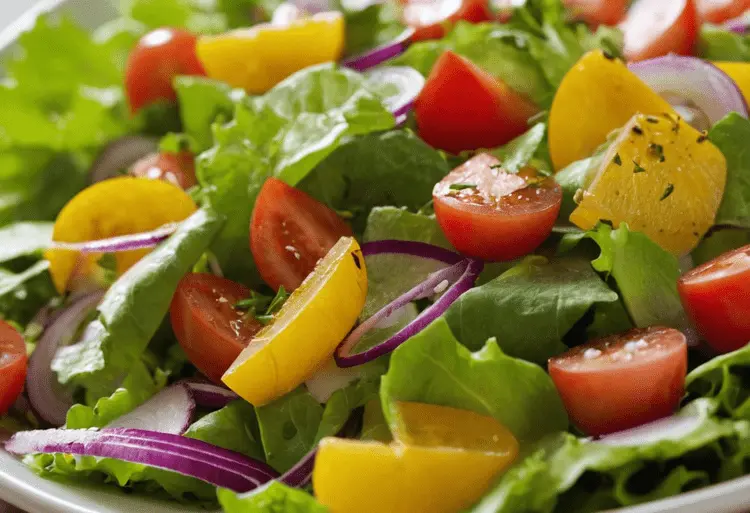Low Isoleucine Diet: Your Ticket to Longevity or a Health Risk?
What if a simple dietary change, like following a low isoleucine diet, could unlock the secrets to a longer, healthier life?
This intriguing approach is gaining traction for its potential to rewire your metabolism, support weight loss, and possibly even fend off chronic diseases.
But is it all sunshine and rainbows? What are the real benefits and risks of embracing a low isoleucine diet? Could restricting this essential amino acid lead to deficiencies? And what exactly can you eat on a low isoleucine diet?
This comprehensive guide dives deep into the science behind this fascinating dietary approach. We’ll explore the potential benefits of a low isoleucine diet, including its impact on longevity, metabolism, and weight loss.
We’ll also address potential risks and arm you with the knowledge you need to make an informed decision about whether this diet is right for you.
Low Isoleucine Diet: A Quick Overview
- Isoleucine: Amino acid
- Diet restricts intake
- Possible longer life
- Metabolism boost
- Muscle loss risk
Table of contents
The Low Isoleucine Diet

Is a Longer, Healthier Life Possible?
Ever wished for a magic pill to unlock a longer, healthier life? While that’s still a fantasy, a new dietary approach is making waves in longevity research: the low isoleucine diet. But what is it, and could it be your key to a vibrant future?
What is Isoleucine, and Why Should You Care?
Isoleucine is an essential amino acid. Your body needs it for building and repairing muscles. Sounds great, right? Well, recent studies have shown a potential downside.
Restricting isoleucine might actually slow down aging and boost metabolic health. Fascinating, isn’t it?
Landmark Studies: The Science Behind a Longer Life
- A landmark study found that mice on a low isoleucine diet lived significantly longer. They were leaner, had less cancer risk, and enjoyed healthier lives, even while eating more calories.
- Another study suggested that lowering isoleucine might “reprogram” metabolism, promoting healthier aging. It’s like hitting the reset button for your body!
But is it all about calories? The science suggests that isoleucine’s impact goes far beyond its caloric value. It’s a game-changer, and we’re just beginning to understand its potential.
Low Isoleucine Diet: Your Personalized Roadmap to Health
Ready to explore this promising avenue? The low isoleucine diet isn’t a one-size-fits-all approach. It’s about finding what works best for your body.
But remember:
- Consult a healthcare professional: They’ll help you determine if this diet suits your individual needs and health goals.
- Stay tuned: In the following sections, we’ll dive deeper into the science, provide practical guidance, and answer your burning questions.
Let’s embark on this journey towards a healthier, longer life together! Share your thoughts and questions in the comments below or tag us on social media. We’re in this together!
Nutritional Information for Health-Conscious Readers (per 100g of isoleucine-rich foods):
- Beef: Approximately 480mg isoleucine
- Chicken: Approximately 440mg isoleucine
- Eggs: Approximately 280mg isoleucine
Think low isoleucine is the ONLY path to longevity? Not so fast! The meat and fruit diet offers a different approach, promising health benefits but with potential drawbacks. Curious? Dive into our deep dive and uncover the truth.
Your Low Isoleucine Diet Roadmap
Are you ready to embark on a journey toward potential longevity and enhanced health? The low isoleucine diet is more than a trend; it’s a scientifically-backed approach with promising benefits.
But how do you actually do it? Let’s break down the practical steps to make this diet work for you.
How Low Should You Go?
One size doesn’t fit all on this diet. Your ideal isoleucine intake depends on your individual goals, body composition, and activity levels. Are you looking for significant longevity benefits, metabolic improvements, or simply a healthier way of eating?
Different approaches exist for a low isoleucine diet. Some people choose complete elimination of high-isoleucine foods.
Others prefer cyclical restriction, enjoying these foods occasionally. Still, others opt for a targeted reduction, focusing on lowering overall intake.
Landmark studies in mice have shown the dramatic impact of isoleucine restriction on lifespan and healthspan. However, consulting a registered dietitian or healthcare professional is crucial, especially if you have any underlying health conditions.
They can help you determine the best approach for your specific needs and ensure you meet all your nutritional requirements.
Foods to Embrace: Your Low-Isoleucine Pantry Staples
So, what can you eat on a low isoleucine diet? Thankfully, a wide variety of delicious and nutritious foods are naturally low in this amino acid.
Fill your plate with these low-isoleucine champions:
- Vibrant Vegetables: Load up on leafy greens, broccoli, carrots, bell peppers, and other non-starchy veggies. They’re packed with nutrients and fiber.
- Juicy Fruits: Enjoy berries, citrus fruits, apples, pears, and other low-isoleucine options for a sweet and healthy treat.
- Wholesome Grains: Explore quinoa, oats, brown rice, and other whole grains for sustained energy and essential nutrients.
For a comprehensive list of foods and recipes low in isoleucine, check out this resource
Not sure how to create balanced, satisfying meals? Don’t worry! We’ll provide you with delicious meal plans and recipes in the next section.
Low Isoleucine Diet Supplements: Filling the Gaps
While a low isoleucine diet is rich in many nutrients, you might need to supplement to ensure you’re getting enough of the other essential amino acids. Your healthcare provider can guide you on which supplements are right for you.
What about Protein?
You might be wondering: “Won’t I miss out on protein if I restrict isoleucine?” Absolutely not! There are plenty of plant-based protein sources like beans, lentils, and tofu that are low in isoleucine.
You can also find protein powders specifically designed for low isoleucine diets.
Important Considerations:
- Nutritional Needs: Ensure you’re getting enough of all the other essential nutrients, especially if you’re eliminating entire food groups.
- Long-Term Sustainability: This isn’t a quick fix. It’s a lifestyle change. We’ll discuss strategies for making it sustainable in the long run.
Low Isoleucine Diet: Recipes and Meal Ideas

Ready to embark on a culinary adventure that nourishes your body and delights your senses? A low isoleucine diet doesn’t mean sacrificing flavor or variety. It’s about discovering new ingredients and creating exciting dishes that support your health goals.
Let’s dive into some mouthwatering meal ideas that will tantalize your taste buds and fuel your journey towards longevity and well-being.
Breakfast:
- Low-Isoleucine Smoothie: Craving a vibrant and refreshing start to your day? Blend your favorite fruits like berries and bananas with leafy greens like spinach or kale. Add a scoop of plant-based protein powder for an extra boost of nutrients.
- Savory Oatmeal Bowl: Who said oatmeal has to be boring? Elevate your morning oats with a savory twist. Top them with low-isoleucine nuts like almonds or walnuts, seeds like pumpkin or sunflower, and a sprinkle of dried cranberries or apricots for a burst of sweetness.
- Egg-Free Tofu Scramble: Looking for a plant-based alternative to scrambled eggs? Tofu is your answer! Crumble it and sauté it with your favorite veggies like onions, peppers, and mushrooms. Season with turmeric, nutritional yeast, and black salt for an eggy flavor without the isoleucine.
Lunch:
- Lentil and Vegetable Soup: A warm and comforting bowl of lentil soup is the perfect antidote to a chilly day. Packed with protein, fiber, and an array of colorful vegetables, it’s a hearty and nutritious lunch option that will keep you feeling full and satisfied.
- Salad with Quinoa and Chickpeas: Need a light and refreshing lunch that won’t weigh you down? A salad packed with quinoa, chickpeas, and your favorite veggies is the way to go. Drizzle with a simple vinaigrette or tahini dressing for a flavor explosion.
Dinner:
- Roasted Vegetable Platter with Tempeh: Roasting vegetables brings out their natural sweetness and enhances their flavors. Pair them with tempeh, a fermented soy product that is a fantastic source of plant-based protein, for a complete and satisfying meal.
- Stir-Fry with Tofu and Vegetables: Stir-fries are a quick and easy way to get a nutritious meal on the table in no time. Combine tofu with your favorite veggies like broccoli, carrots, and snow peas. Toss in a flavorful sauce made with ginger, garlic, and soy sauce for an explosion of taste.
Snacks:
- Fruits and Vegetables: The simplest and most satisfying snacks are often the most nutritious. Reach for fresh fruits like berries, apples, or oranges, or crunchy vegetables like carrots, celery, or cucumber.
- Hummus and Veggie Sticks: Hummus, made from chickpeas, is a delicious and protein-rich dip. Pair it with your favorite veggie sticks like carrots, cucumbers, or bell peppers for a satisfying snack that’s low in isoleucine.
Don’t forget to leave a comment below and let us know which recipe you’re most excited to try. Share your culinary creations with us on social media and tag us – we’d love to see what you come up with!
Thriving on Your Low Isoleucine Diet
Sticking to any diet can be a challenge, but a low isoleucine diet comes with its unique hurdles. But fear not, my friend! With the right tools, it’s not only doable but can become a delicious, fulfilling part of your life.
Meal Planning Mastery
Ever found yourself staring into the fridge, wondering, “What can I even EAT?” Yeah, me too. That’s where meal planning swoops in to save the day!
- Stock your kitchen with staples: Fill those shelves with low-isoleucine superstars like fruits, veggies, grains, and legumes.
- Prep like a pro: Who doesn’t love leftovers? Batch cook some delicious low isoleucine recipes and you’ll thank yourself later.
- Label reading ninja: Processed foods can be sneaky with hidden isoleucine. Channel your inner Sherlock and scan those labels like a boss!
- Discover a treasure trove of meal ideas and low-isoleucine recipes to keep your taste buds happy while nourishing your body.
Navigating Restaurants Like a Pro
Eating out on a low isoleucine diet? Absolutely! It just takes a bit of savvy.
- Choose restaurants with options: Plenty of places cater to dietary needs. Do a little research or call ahead to make sure you’ve got choices.
- Customize like a champ: Don’t be afraid to ask for substitutions or modifications to make dishes fit your diet. Most places are happy to help!
- Pack your own snacks: A little preparation goes a long way. If you’re unsure of your options, bring along some low-isoleucine goodies.
Staying on Track: Your Motivation Toolbox
Let’s be real, motivation isn’t always a fireworks show. Some days, it’s more like a flickering candle. But that’s okay!
- Set SMART goals: Specific, Measurable, Achievable, Relevant, Time-bound. That’s the magic formula for goals that actually stick.
- Track your wins: Big or small, celebrate those successes! Journal, snap photos of your meals, or share your triumphs on social media.
- Find your friends: Connect with other people embracing a low isoleucine lifestyle. Online groups, forums, or even a supportive friend can make all the difference.
- Don’t be afraid to ask for help: A registered dietitian can be an invaluable resource in personalizing your diet and troubleshooting any challenges you encounter. Remember, you’re not alone in this journey!
Your Turn to Shine
What strategies keep you motivated on your low isoleucine diet? Share your tips and tricks in the comments below or tag us on social media! We’re all in this together, and your insights could be a game-changer for someone else.
Interested in a low isoleucine diet? Craving protein to fuel your weight loss goals? Learn which protein-rich foods can help you shed pounds and boost your health.
Could a Low Isoleucine Diet Boost Your Health?

Unlocking the Health Vault: More Than Just Longevity?
Sure, a low isoleucine diet might help you live longer – but is there more to it? Research hints at a metabolic makeover.
Think sharper insulin response, balanced blood sugar, and even a healthier cholesterol profile. But remember, it’s still early days, and more studies are needed. We’ll keep you posted!
Your Weight Loss Ally?
Could this diet be your secret weapon for shedding those extra pounds? Possibly! Studies suggest a low isoleucine diet may help you reach a healthier weight and keep it off. How? By tweaking your metabolism and curbing those pesky cravings.
Fighting Disease: A Potential Shield?
Now, this is where it gets exciting! Emerging research links a low isoleucine diet to lower risks of cancer, heart disease, and even neurodegenerative conditions like Alzheimer’s.
But hold your horses – these are preliminary findings, and more research is needed. We’re keeping our fingers crossed!
The Flip Side: Risks and Precautions
Let’s be real, every diet has its downsides. A low isoleucine diet is no exception. One concern? Muscle loss.
Isoleucine is crucial for muscle building, so restricting it might lead to some unwanted muscle loss. The solution? Pump some iron! Strength training can help counteract this effect.
Essential Amino Acids: A Balancing Act
Isoleucine is one of nine essential amino acids – meaning your body can’t make it, and you need to get it from food.
A low isoleucine diet requires careful planning to ensure you’re still getting enough of the other eight. But don’t worry, we’ve got you covered with plenty of resources and tips!
Nutritional Nuggets: Making Informed Choices
Ever wondered about the nutritional impact of your choices? For all you health-conscious foodies out there, we’ve got the scoop. A low isoleucine diet encourages you to load up on nutrient-dense foods like fruits, vegetables, and whole grains.
So, not only are you potentially improving your healthspan, but you’re also nourishing your body with essential vitamins, minerals, and antioxidants.
Not for Everyone: Who Should Steer Clear?
Hold on a second! This diet isn’t for everyone. Pregnant women, growing children, and people with certain medical conditions should avoid it. If you’re unsure, talk to your doctor or a registered dietitian. They can help you determine if this diet is a good fit for you.
Your Burning Questions: Answered!
You can enjoy plenty of fruits, vegetables, grains, and plant-based protein sources like beans, lentils, and tofu.
Focus on eating more low-isoleucine foods and limiting high-isoleucine foods like meat, dairy, eggs, and certain nuts and seeds.
Isoleucine is found in most protein-rich foods, especially animal products like meat, poultry, fish, dairy, and eggs. Some plant-based foods like nuts and seeds also contain isoleucine.
There are no known food components that completely block isoleucine absorption. However, a balanced diet with a variety of protein sources can help ensure optimal amino acid balance.
Not at all! It’s essential for your body to function properly. But like many things in life, moderation is key. Restricting isoleucine might offer certain benefits, but it’s important to do it safely and under professional guidance.
It might! Studies suggest it could help you shed pounds and maintain a healthier weight. But remember, it’s not a magic bullet. A balanced diet and regular exercise are still key for overall health and well-being.
Say goodbye to meat, dairy, eggs, and some nuts and seeds – these are high in isoleucine. But don’t fret! There are plenty of delicious and nutritious low-isoleucine alternatives out there.
We don’t have all the answers yet. More research is needed to determine the long-term safety and efficacy of a low isoleucine diet. It’s always best to consult with a healthcare professional before making any drastic dietary changes.